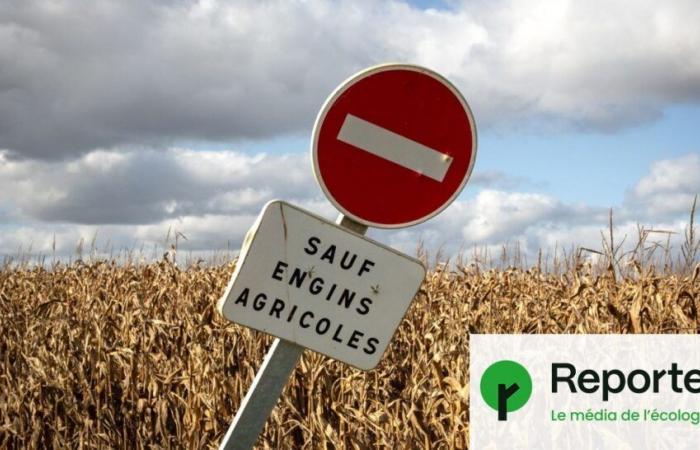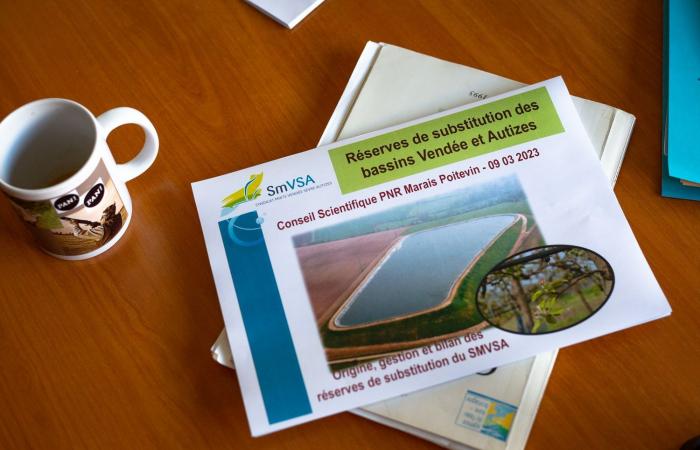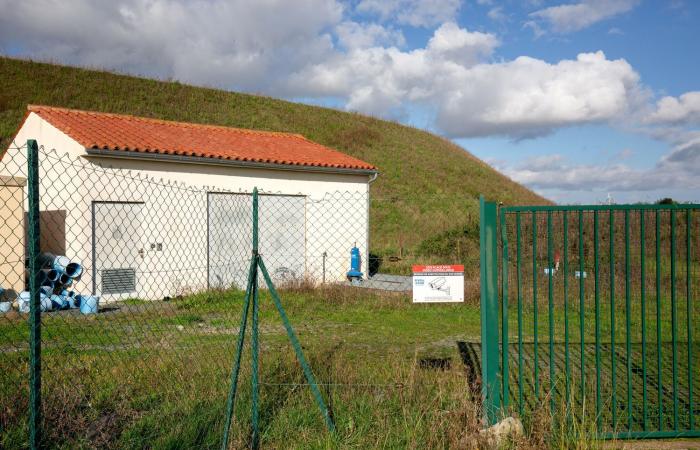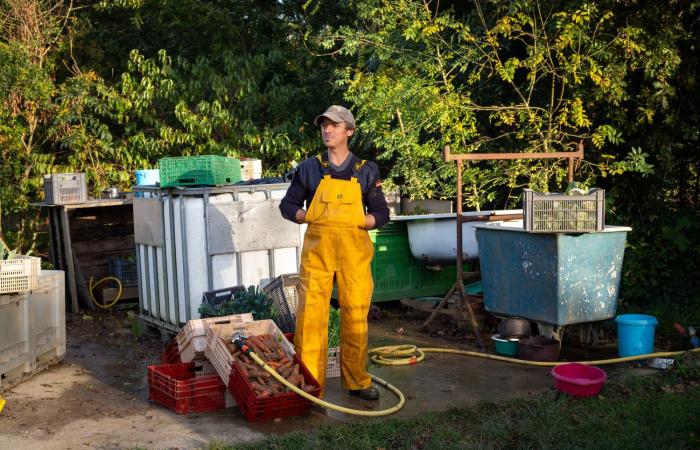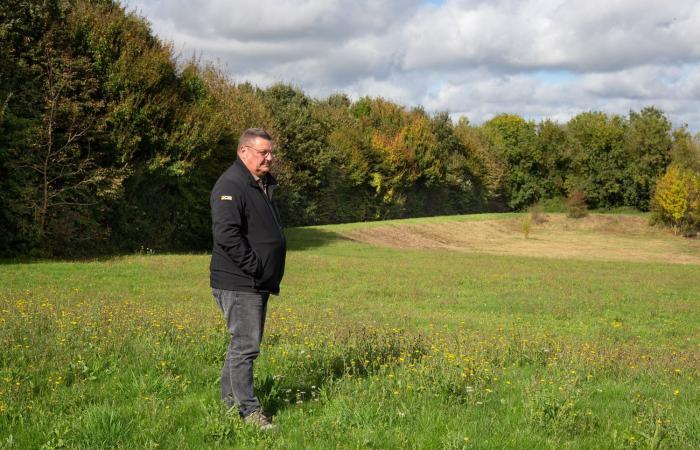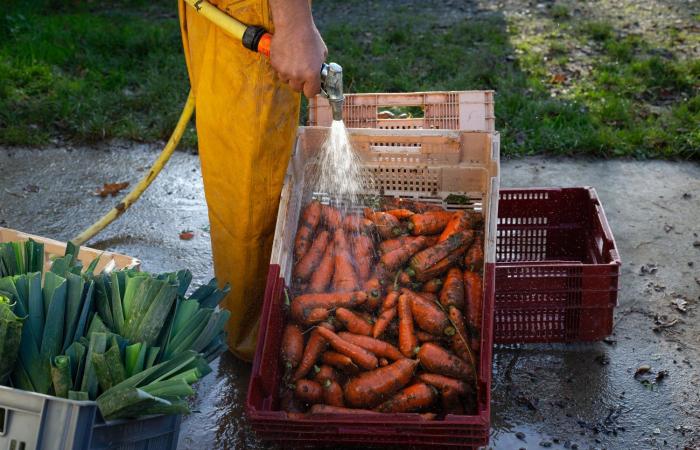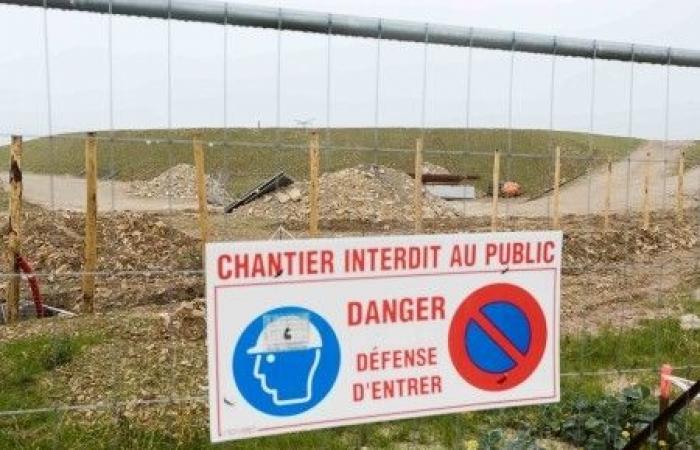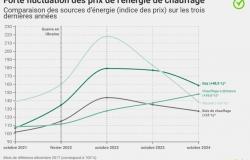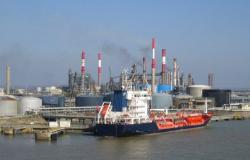Fontenay-le-Comte (Vendée), report
At the headquarters of the Vendée Sèvre Autise Mixed Union (SMVSA) illuminated by a late harvest sun, technician Fabrice Enon receives Reporterre following a well-established ritual. Installation of the monitor, appearance of its wallpaper in the colors of a dragonfly from the Marais Poitevin, opening image of a presentation of thirty slides on the success of water management in the area managed by the union in the south of the department where the first « replacement reserves » from France.
Much less publicized than their cousins from Poitou-Charentes contested under the name of « megabasins ». « Scientists came from Paris skeptical and left « convinced »explains the guide with the accents of a marketing director. He lifts a cheekbone in the blink of an eye: « The Vendéens are chauvinistic, sorry ! » In view of the publicity that the supporters of this type of water management make of the Vendée success, it would be wrong to deprive ourselves !
A few meters from the megabasin, this irrigation pump was installed for watering the plantations.
© Quentin Hulo / Reporterre
Unlike the highly contested projects in Nouvelle Aquitaine, the 25 megabasins in the south of Vendée would « unanimity »according to the words of his supporters reported by Le Figaro. Located north of the Marais Poitevin, the works are presented by the Loire" rel="tag">Pays de la Loire Chamber of Agriculture as a « model ».
And « model » far from being impeccable
While the agricultural protest movement was simmering at the start of 2024, the Minister of Agriculture, Marc Fesneau, went to Vendée, proclaiming: « There is a need for replacement reserves [le nom technique des bassines]the Sainte-Soline model is a virtuous model. » Virtuous for the benefits of irrigated agriculture, perhaps, but for tackling the water crisis, this is a matter of debate.
If restrictions on the use of water have allowed real progress locally, these giant reserves have only had a marginal effect on agricultural practices, maintaining dependence on massive irrigation and tensions during periods of increasingly marked drought. Enough to question the idea that the « Vendée model » proves the effectiveness of the basin system.
In the offices of the Vendée Sèvre Autizes Mixed Syndicate, a file on the management and balance sheet of the substitution reserves of the SMVSA.
© Quentin Hulo / Reporterre
First glaring difference between Poitou-Charentes and Vendée: the construction of these reserves was part of a water management project aimed at saving the Marais Poitevin and not irrigated agriculture. The second largest wetland in France, whose altitude is in places below sea level, saw its ditches dry up severely at the turn of the millennium during the summer period, when major cereal crops drew uncontrollably from their boreholes, draining the shallow water tables in the area.
Goodbye flooded meadows, dragonflies, kingfishers… and regional natural park status. At the beginning of the 2000s, technicians from SMVSA have released piezometers and calculators to assess the reasonable quantities that can be drawn.
« There were 60 % of excess samples in summer »
« There were 60 % of excess samples in summersummarizes Fabrice Enon for Reporterre. Except that, if we decided to drop by 60 % water use meant economic collapse for farms. » A negotiation was carried out at the beginning of 2000 between representatives of the agricultural world and local authorities: the irrigators agreed to reduce by 20 % summer samples in exchange for the construction of basins which would store the 40 % of water remaining to be saved in summer.
To supervise this policy, a public establishment was created, the Marais Poitevin Public Establishment. Where, for the megabasins of Poitou-Charentes, it is a private establishment, the Coop de l'eau des Deux-Sèvres, which has control of the taps.
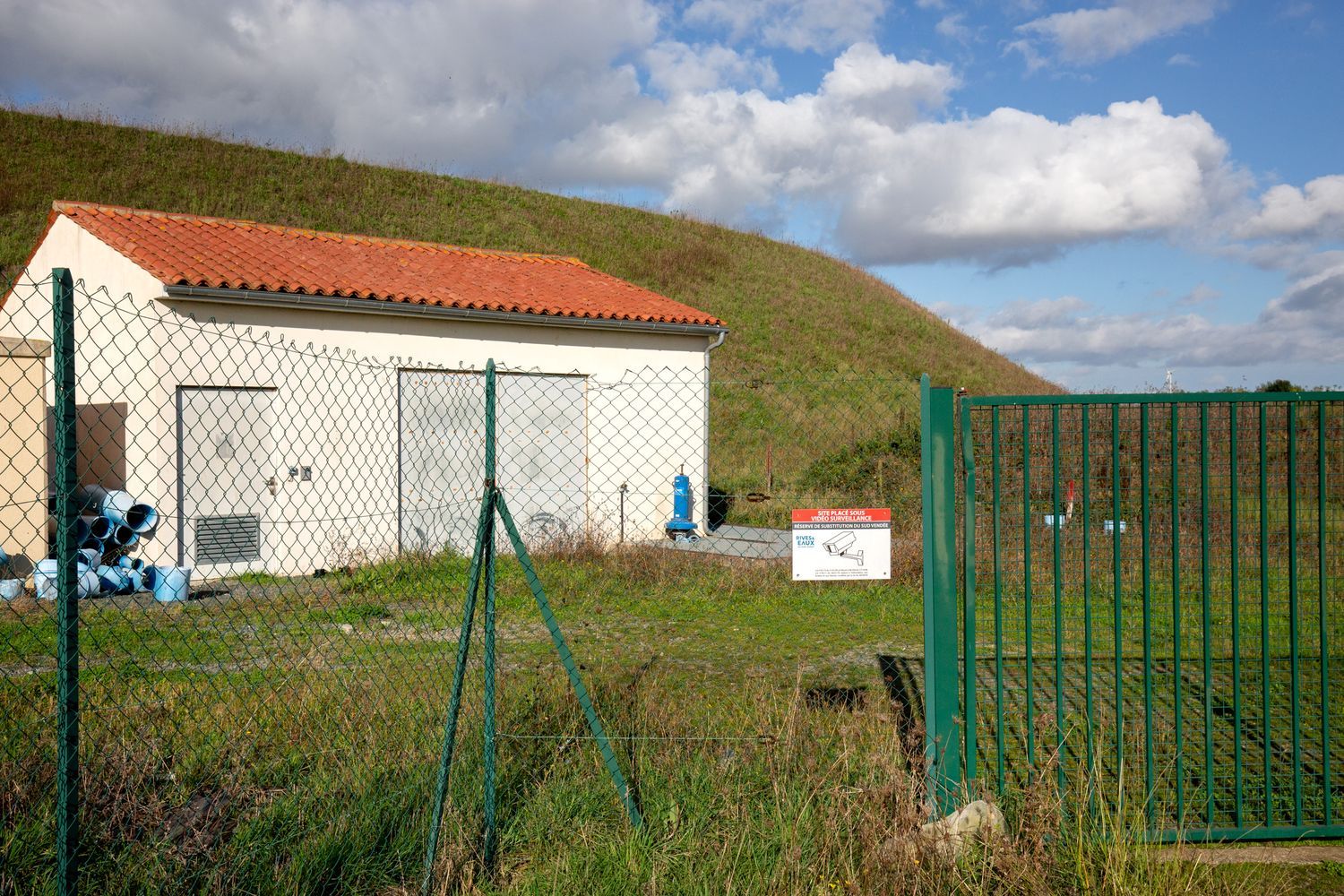
This mega-basin, closed to the public, is surrounded by a fence placed under video surveillance.
© Quentin Hulo / Reporterre
First measure implemented in 2007 in Vendée: the increase in the legal limits below which it was authorized to draw from the water table: from 0 meters, the so-called threshold « crisis level » was raised to 1.7 meters then to 2.5 meters. Forced to wait for filling, farmers drew less.
Immediate effect, the tablecloth is raised. Close to the surface, it was able to water new rivers, canals and ditches, the Marais regained its colors, its dragonflies and, in 2014, its label. And all this before the basins are even built.
« There was no need to build basins to restore the environment »
« When we raise the level of the water table up to which it is authorized to pump, the water police intervene when there are illegal withdrawals, that's why it worksanalyzes a hydrologist contacted by Reporterre. But this political measure could have been taken without compensation: there was no need to build ponds to restore the environment. »
In the opinion of most stakeholders, the construction of the basins was intended to ease the pill of water restrictions. And the thresholds themselves are contested. « These authorizations are very permissive, they were set to allow irrigation, not to restore the environments »succinctly summarizes David Briffaud, farmer member of Bassines non merci Vendée.
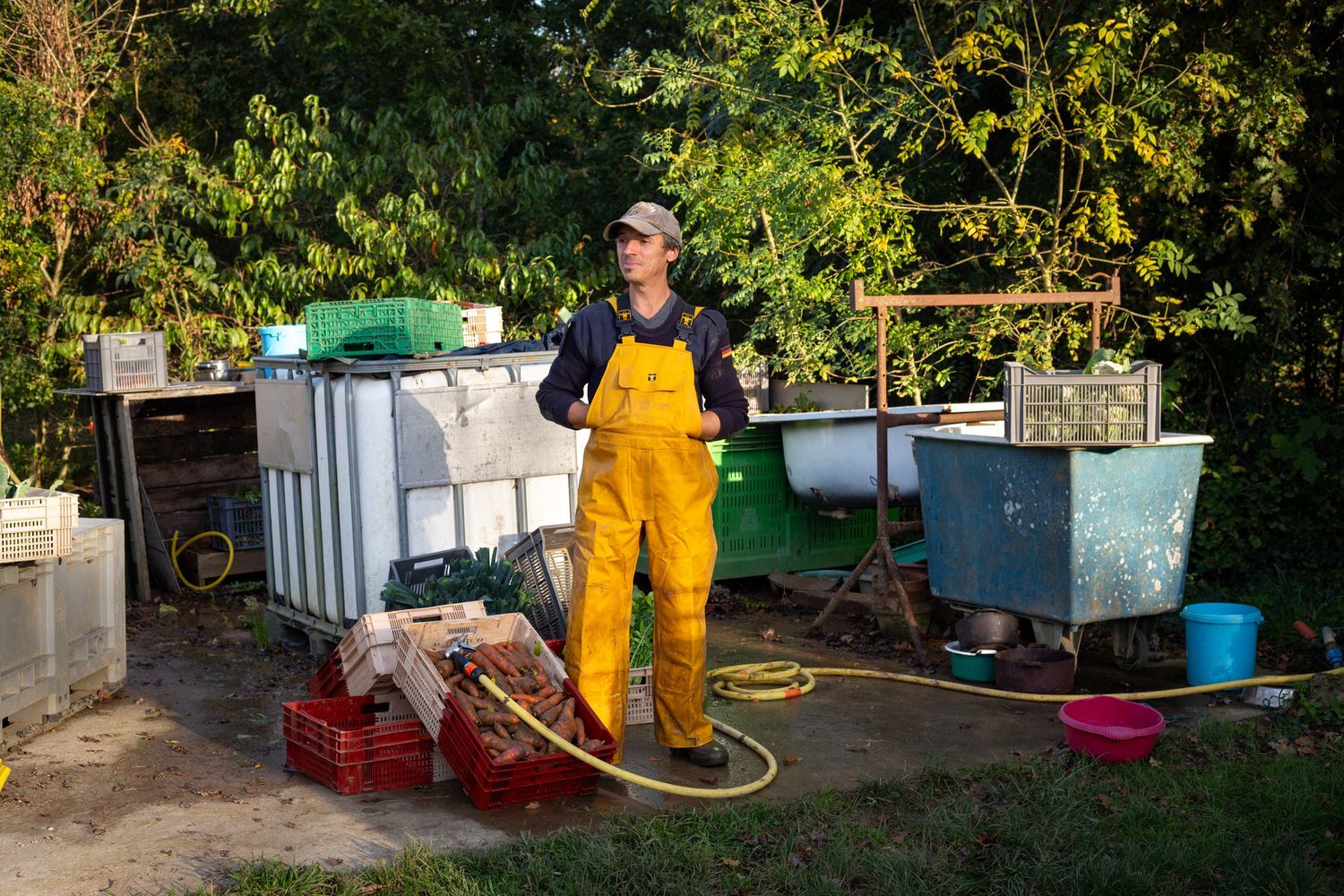
« We are not going to start the pumps for a small farm like mine », says Olivier Cotron, market gardener on a small farm which needs water all year round.
© Quentin Hulo / Reporterre
Climate change has disrupted this model. The number of days when the water table level allows the basins to be filled within the period provided for by law decreases drastically in a dry year: between November and March, the water deficit does not allow the pumps to be launched for between 20 and 60 days depending on over the years, requiring more intense sampling over shorter periods. The promoters of the model propose to do away with the dates and only fill according to the level of the water table or to shift the filling periods… without changing agricultural practices.
Added value and market opening
It must be said that, for the representatives of the main agricultural organizations, the basins of the south of Vendée have enabled the conquest of new outlets: « As long as water is secure, it opens markets and irrigation brings added value »explains Éric Porcher, member of the Pays de la Loire Chamber of Agriculture and cereal farmer in Longèves.
Seed corn, vegetables in greenhouses… but few small farms or market gardening, for a technical reason specific to basins, in Vendée as in Poitou. « The pumps which inject the water from the basins into the irrigation networks are started in April, for wheat and corn, but I need water all year roundexplains Olivier Cotron, market gardener at the Ores farm, in Sainte-Gemme-la-Plaine. Rinsing his leeks before the market with water drawn from a borehole, he adds with a smile: « We are not going to start the pumps for a small farm like mine ! »
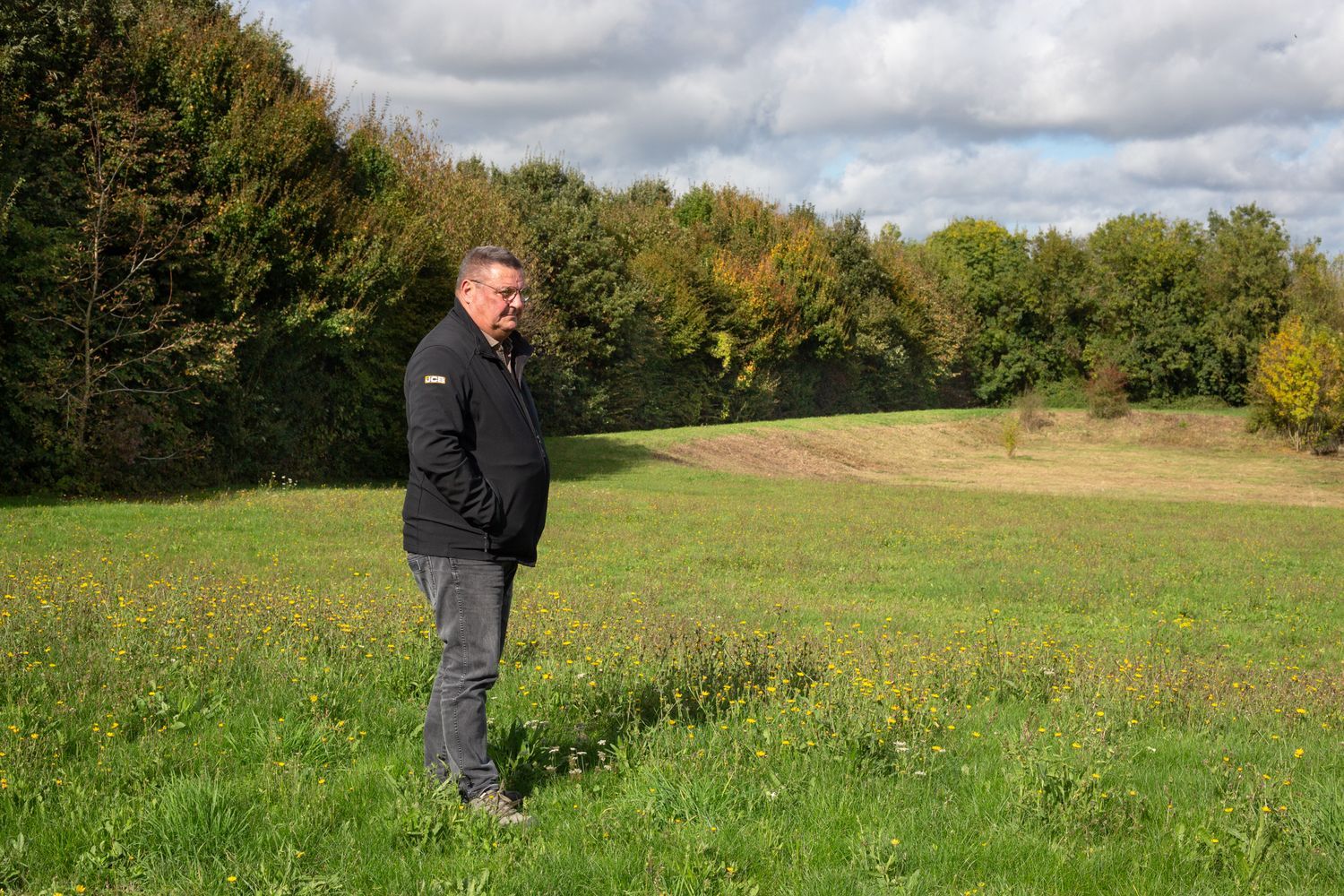
Éric Porcher, cereal producer, is in charge of the Water file at the Vendée Chamber of Agriculture.
© Quentin Hulo / Reporterre
The Vendée model of water management has received significant public funding via the Loire Bretagne Water Agency (AELB), which covers the basins of Central West France including Vendée and most of Poitou-Charentes. In 2021, a report commissioned by this agency took stock of the project and highlighted in particular the objectives in terms of changing agricultural practices: between 2010 and 2019, irrigated areas remained stable with a decline of 5 % of corn and progress in high value-added crops (vegetables, flowers) on the areas thus freed.
Among the counterparts to public aid, « agroecological and environmental measures »whose « deirrigation »that is to say the reduction in the use of irrigated crops supposed to account for a quarter of water savings. A measure abandoned in 2014 due, according to the report, to « reluctance » irrigators in view of investments.
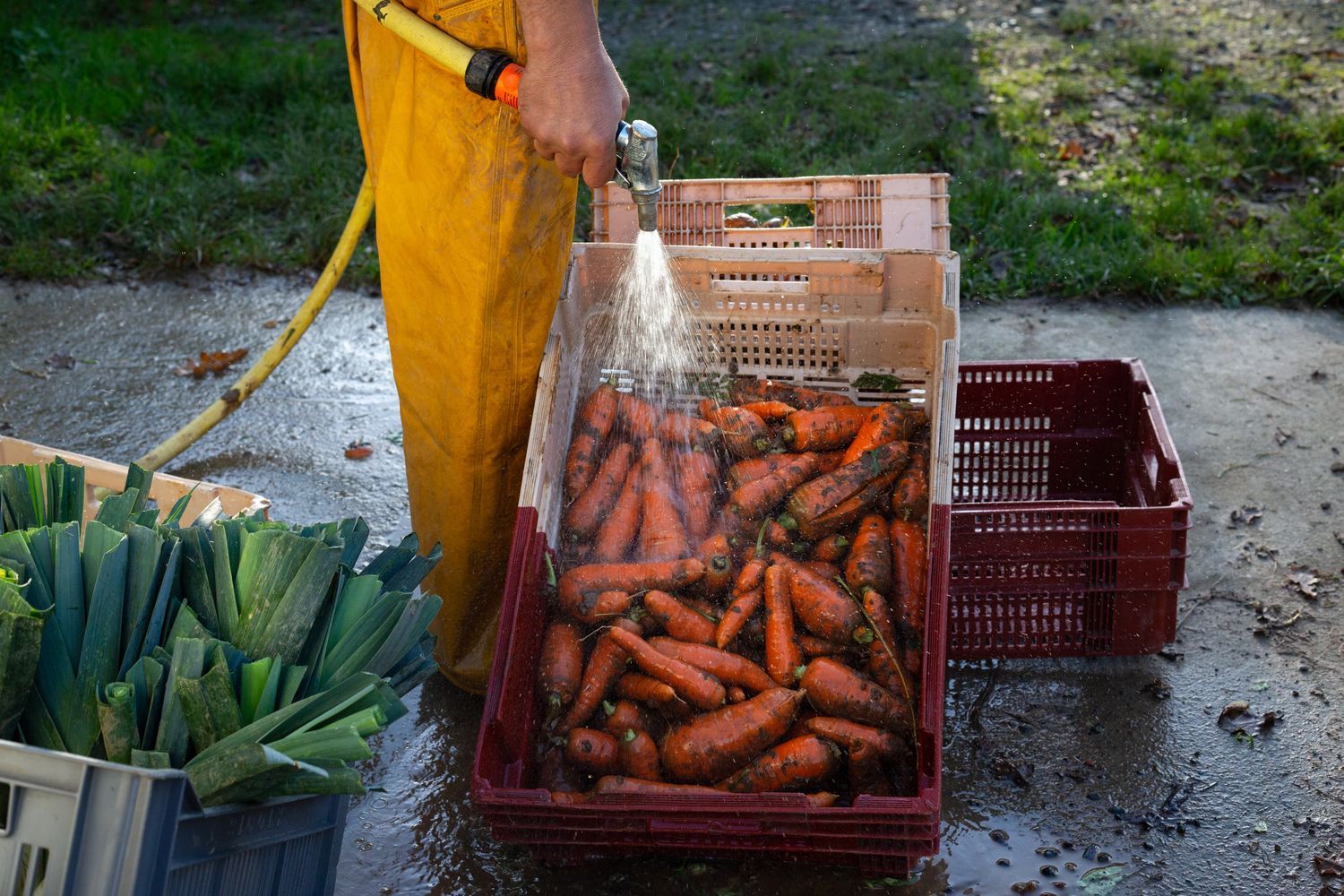
Olivier Cotron, along with Florence, works in organic farming. A practice which contrasts with water management contracts which do not consider the reduction of phytosanitary products and fertilizers.
© Quentin Hulo / Reporterre
« The water management contracts concluded between managers and public financiers were designed with a very quantitative vision: the reduction in the use of phytosanitary products and fertilizers was not considered.recognizes Morgan Priol, territorial director of the Maine Loire Océan delegation of theAELB. The results have been insufficient, the agricultural world must rethink its relationship to climate change. »
« We will not let go of any cubic meter in Vendée »
Last July, the administrative court of Poitiers sent back to their copy the water managers on both sides of the Marais Poitevin as analyzed Reporterre : the authorized withdrawal volumes systematically exceeded the capacity of the environments and did not respect the water law.
Among the agricultural representatives gathered before the body on October 21 in Poitiers to contest the decision, Éric Porcher declared to our colleagues to West France : « We will not let go of any cubic meters in Vendée and we will appeal. » Hidden behind the so-called miracle solution of megabasins, the problem of water management turns out, in Vendée as elsewhere, to be first and foremost that of an evolution of agricultural practices and its political regulation beyond the interests of the irrigators.

